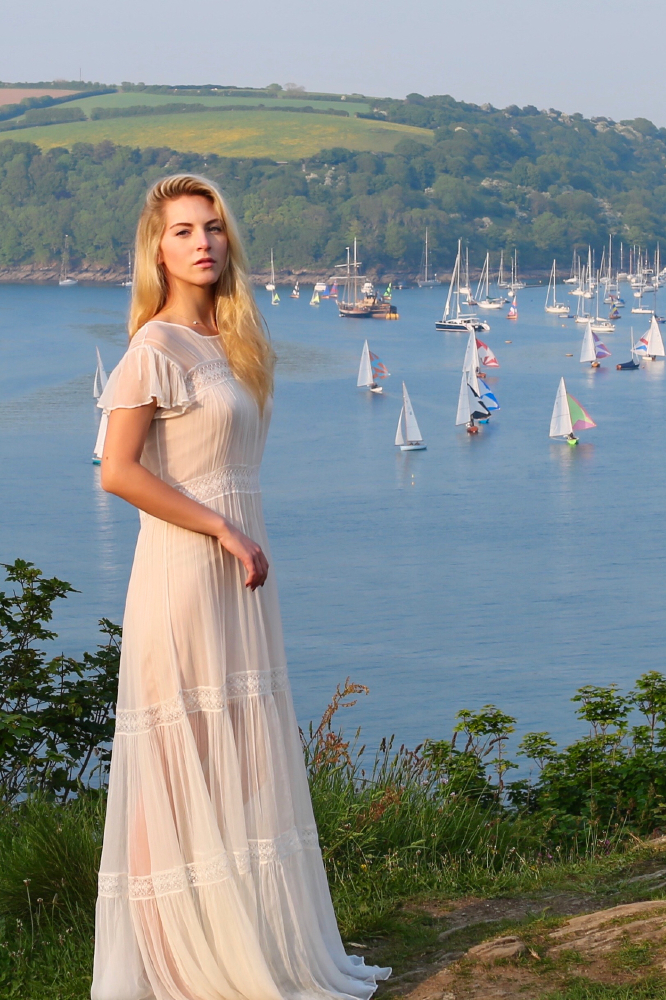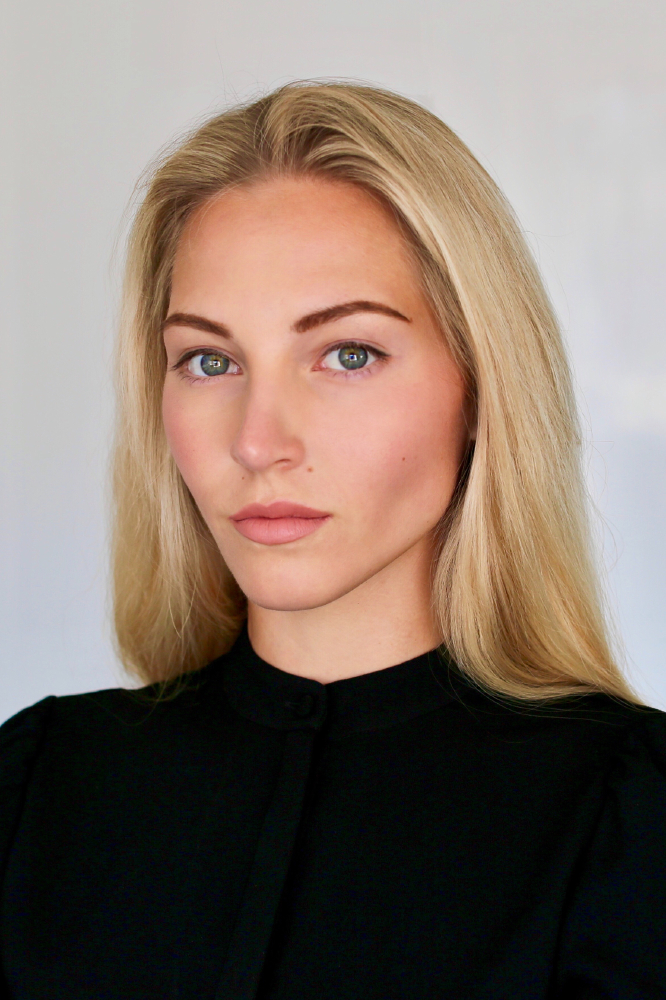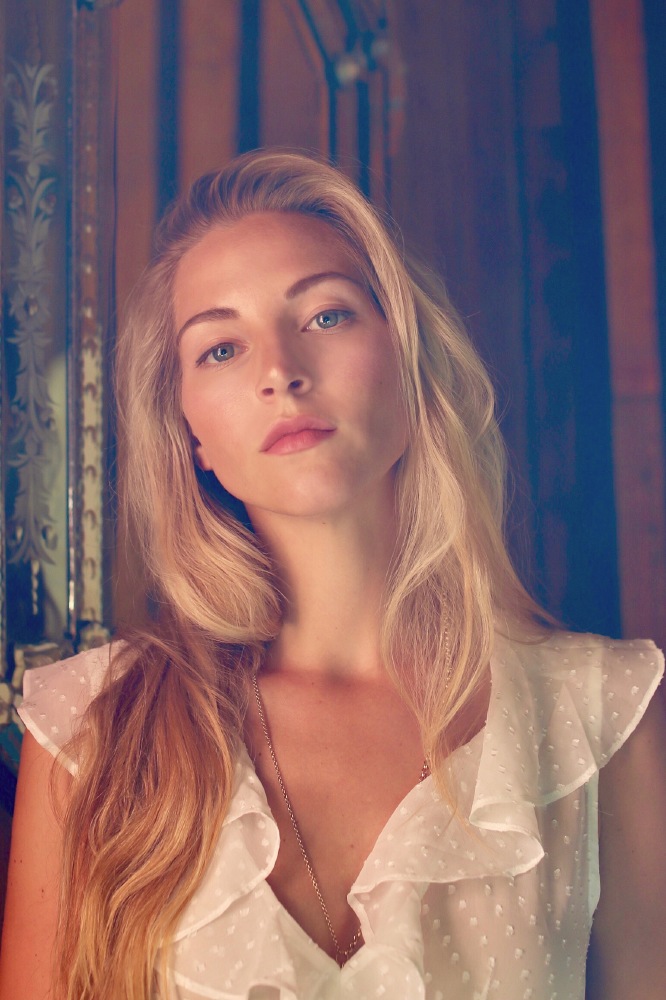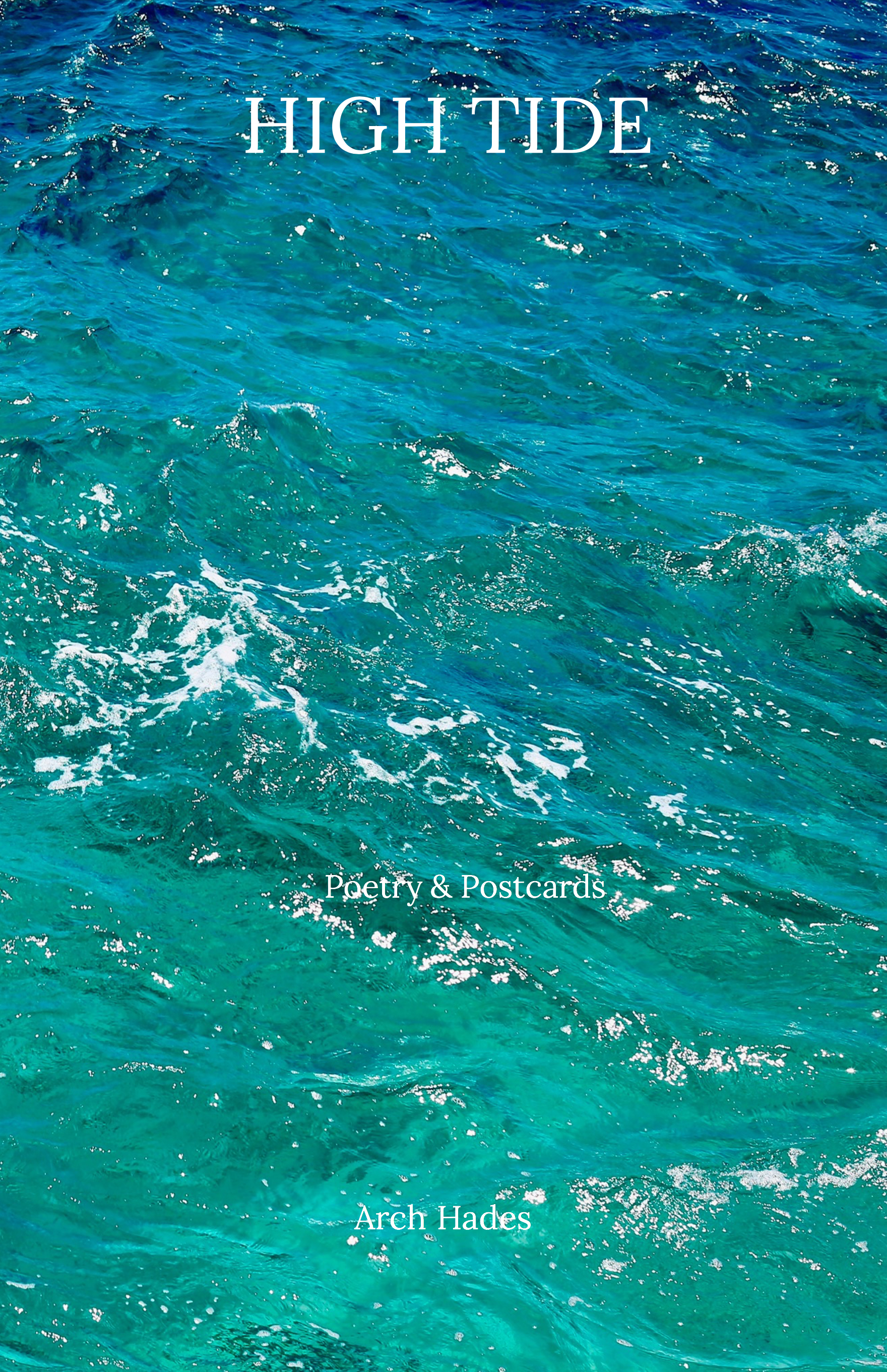Within the space of just a few months, young British poet Arch Hades has amassed a large international online following - after sharing her heartbreak with others in verse.

Arch Hades chats with Female First
The 26-year-old, who is based in London, first started sharing her poetry on her Instagram account in July, following the publication of her debut poetry collection, High Tide: Poetry and Postcards.
For Arch, writing publicly about her heartache and loss – including the breakdown of her marriage – was a cathartic experience.
But she quickly found her sensitive and tender poetry struck a chord with women around the world, and her Instagram account (@archhades) now has more than 47,000 followers.
Speaking exclusively to Female First, Arch says that she first discovered literature and poetry while spending seven years in an all-girls boarding school, where there was limited access to computers or the internet.
Instead, she found solace in the school library – devouring the classics of literature. She describes how she fell in love with books as an “emotional, almost religious experience”.
“One of the earlier stories that really struck me as a teenager was Chekov’s ‘The Lady with the little dog’. The part where the author describes how the lead male character is haunted by the vivid memories of his beloved when they are apart, it induced striking imagery in my mind, and the experience was wonderful, unforgettable, and I needed more.
“Another, very different author – Dostoevsky – has a similar effect, but on the polar opposite end of the emotional spectrum. The opening line to ‘Notes from an Underground’ is: ‘I am a sick man, I am an angry man’, and reading that as a teenager, really resonated with me, but it was heavy reading.”
Hades adds that as it’s sometimes difficult to “know where to start” with literature and poetry, she tries to recommend short, easy stories and always tries to ask for recommendations herself.

“It’s just important for the love of literature to blossom in the first place”, she says.
Hades’ new book, High Tide, is divided into two parts. The first features poetry described as ‘the bittersweet and often intense reality of complicated relationships'.
Hades, who favours a traditional style that plays to rhyme and rhythm - instead of freestyle prose - explains this choice is due to her inspirations, the authors and poets who she most admires: Bunin, Brodsky, Balmont and Gumilev.
For her more popular poems (some that have amassed 100,000 likes) she draws on her personal heartaches, including her five-year relationship with her ex-husband.
Other sources of inspiration come from a turbulent long-distance relationship that ended dramatically, and more recently, poems that have been inspired by the end of a year-long relationship, such as ‘Borderline’ and ‘Blame it on me’.
“Romantic love is the grandest of all poetic themes”, Hades says. “Regardless of how things ended or why, I harbour no ill feelings towards anyone, I don't believe there's such a thing as wasted love.”
Arch says that the sharing of her poetry on Instagram has benefitted both her and her readers.
“Luckily, when I started sharing some extracts of my writing, the reaction was overwhelmingly positive and I'm so grateful for it.
“While I wanted to share my experiences with others so they can feel they are not alone while going through their own heartbreak and loss, their positive feedback has, in return, made me feel less alone.”
As for anyone who is new to her poetry, Arch advises that “poetry is a mood; it’s an emotional state. We sometimes need that to awaken us, sometimes to comfort us.
“High Tide is an emotional crossing from heartbreak to peace and acceptance. If you’re looking to share in that state, I hope my poetry will appeal to you.”
The second half of Hide Tide includes postcards that captures the author’s travels and is composed of scans of postcards she has handwritten and sent to loved ones from all over the world.

The combination of pictures, poetry and personal experiences has won the hearts and minds of women, and men, of all ages, and has garnered five-star reviews online.
Speaking about her love of postcards, a form of communication largely surpassed by the rise of instant digital communication, Arch says: “I use postcards to capture a momentary state – the external and internal. To then read those words again and be transported back to that moment and my frame of mind during writing, it’s wonderful.”
“I want to encourage more people to write postcards. Not just for future musings and nostalgia, but because at the time of writing it helps you to be present and reflective.”
Hades references Japanese authors, in particular, as her inspirations for her postcard style – Kobo Abe, Haruki Murakami and Yasunari Kawabata.
“The way they observe their external worlds and describe the evolution of their emotions within them is inspiring’.”
Talking about the contrast between the traditionalist styles and the rise of the popular ‘Insta-poets’ movements, Hades states, “I’m particularly fond of Atticus and R. H. Sin, as are millions of others who find their words poignant and moving. Although, to be honest, I am very keen on the traditionalists – Byron, Tennyson, Keats etc.
“Nevertheless, I encourage and admire this new movement. We’re in a sharing society now so it’s nice that poetry is flourishing,; that poetry is being revived, and that it is becoming popular once more given this accessible format. It’s poetry for the masses.”
High Tide: Poetry & Postcards by Arch Hades is an original collection of poignant and relatable poetry about love and loss, which capture a troubled year in the life of the author. It is available now on Amazon UK priced £5.99 in paperback and £4.99 as an eBook. Follow Arch on Instagram @archhades.

Q&A with High Tide author, Arch Hades
We grab five (more!) minutes with the acclaimed Instapoet to find out more about her work, inspiration and the future of poetry.
When did you begin publishing your poetry online, and what motivated you?
I only began posting my poetry after the publication of High Tide in July. I wanted to share my material and see if people found it relatable.
Were you aware of the ‘Instapoets’ movement before you began publishing your own poetry online? What do you think of this movement? Are there any other Instapoets you particular admire, and why?
Yes, I am aware of the Instapoets movement, I’m particularly fond of Atticus and R. H. Sin, as are millions of others who find their words poignant and moving. Although, to be honest, I am very keen on the traditionalists – Byron, Tennyson, Emerson, Poe, Bunin, etc. Nevertheless, I encourage and admire this new movement. We’re in a sharing society now, it’s nice that poetry is flourishing, that poetry is being revived and is becoming popular once more given this accessible format. It’s poetry for the masses.
You describe the process of writing the poetry as ‘cathartic’. In what sense did it help you, and did you feel any emotional vulnerability about publishing your work the first time?
Cathartic is an appropriate word here. My grandfather (also a poet) used to tell me that a problem well stated is a problem half-solved and I can honestly say I used this form of expression to help me through some difficult times. In times of heartbreak, loss, lethal love, unrequited lust and failure, I feel a touch of redemption and solace when I feel I am not alone, that somewhere out there someone also felt that way, and hopefully they don’t feel that way any anymore. It brings me peace, it strengthens me. If that person conquered it, so can I. Luckily, when I started sharing some extracts of my writing, the reaction was very positive and I’m so grateful for it. I’m so glad people find my obscure sorrows and heartaches relatable and when they tell me it helps them feel less alone, it helps me feel less alone too.
I can’t say I felt particularly emotionally vulnerable when first sharing my poetry. I’ve always been very honest with people and very open. I don’t see the point of not saying that I mean and not meaning what I say.
Sending postcards is unusual among younger people in the Instagram age - what is it that attracts you to this method of communication?
Sending postcards is an old sentiment of mine that originates from my school days. I spent seven years in an all-girls boarding school where cell phone use and access to social media were very restricted. However, we were allowed to post letters and that became my outlet. Handwritten letters and postcards are a form of art in themselves. When you have a limited amount of physical paper to write on, suddenly, you have to be concise, thoughtful and eloquent. It was a challenge at first – when you can write anything, but, you can only write a few sentences. It’s a beautiful game. One doesn’t easily discards letters too. You write your girlfriend a letter, I promise you, whatever happens, she is going to keep that forever. I began writing to my best friend Bobby more than ten years ago, who attended an all-boys boarding school, and we’ve kept it up ever since.
How important is it to have a strong visual image to accompany your poetry - Instagram is, obviously, a very visual medium?
I appreciate that Instagram is a very visual medium, and I see the sense in other poets accompanying their words with sketches or pictures etc, but I only use Instagram as one tool to promote my poetry, and overall I want to keep my poetry stand-alone. I want to exercise people’s imagination when they read my words, I don’t want to put images in their heads. That said, I do like to post photos of my travels on Instagram, but I keep them separate from my poetry.
How have friends and family reacted to the sharing of your postcards online?
Luckily, everyone has been very supportive and open to this venture and I hope that remains.
Who do you see your poetry appealing to, and why?
Anyone who wants to feel less alone in their heartaches, I suppose. I believe poetry is for everyone and can be enjoyed by anyone. Poetry is a mood, it’s an emotional state. We sometimes need that to awaken us, sometimes to comfort us. High Tide is an emotional crossing from heartbreak to peace and acceptance. If you’re looking to share in that state, I hope my poetry will appeal to you.
How different was the experience of compiling a volume of poetry for physical publication, as opposed to the more immediate process of publishing online?
I guess it’s no surprise that I found it more difficult and time-consuming to compile a volume of poetry for physical publication. Fortunately, I’ve had great help from my editor and I am very grateful to him. He taught me that even with poetry or short prose, it’s best to have an overall narrative, to create some kind of story throughout the collection. Creating that narrative, accompanied with character development in Hide Tide was very important to me and I hope it resonates with readers. The more immediate process of posting online perhaps requires less structure – however, this is just one opinion, I’m no expert.
What are the most challenging aspects of writing poetry? Have you ever been interested in writing other forms of poetry, historic or modern, such as sonnets?
I believe poetry is there to set a mood, to capture a perspective, an experience, in a succinct and ardent way. The poems I like best need unpacking, more thinking and stay with the reader, while also clearly projecting images and emotions into the readers’ mind and heart. Achieving that is the challenge. I prefer the traditionalist rhyming schemes and rhythm, and sometimes even light verse, as opposed to free-style prose, so yes, I am definitely open to historic and modern poetry, maybe there will be some in Volume II.

